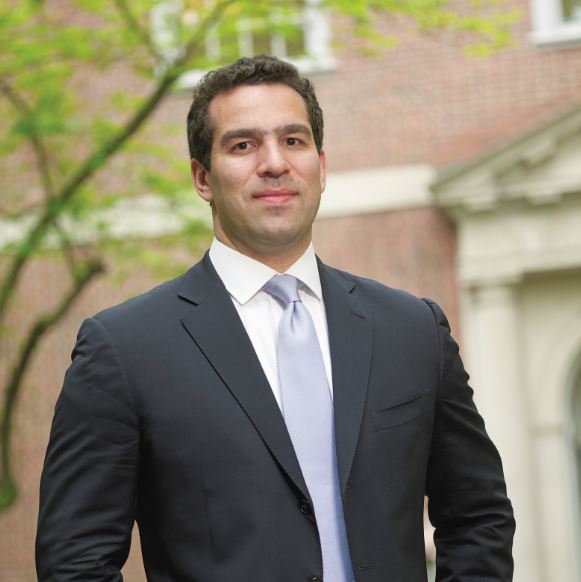Global Intelligence Oversight: Governing Security in the Twenty-First Century
Zachary Goldman and Samuel Rascoff recently released Global Intelligence Oversight: Governing Security in the Twenty-First Century.
Published by The Lawfare Institute
in Cooperation With

Zachary Goldman and Samuel Rascoff recently released Global Intelligence Oversight: Governing Security in the Twenty-First Century. The edited volume “is a comparative investigation of intelligence oversight systems in democratic countries, which focuses on some of the new dynamics shaping and constraining intelligence services, and the range of purposes a holistic approach to oversight should serve.” This week, Lawfare is hosting a mini-forum where contributing authors discuss their chapters.
***
The last several years have seen the most robust public debate about the oversight of intelligence agencies in decades. This discussion was triggered most immediately by Edward Snowden’s massive leak of documents describing American and allied surveillance programs. But motivating the discussions more broadly is the growth and global diffusion of sophisticated communications technologies and the reliance of the United States and its close allies on them in the name of counterterrorism. Because these programs inevitably require secrecy, the normal mechanisms of democratic control over government activity give out, and the need for specially designed oversight structures that serve as a proxy for democratic populations kicks in.
In this context Global Intelligence Oversight: Governing Security in the Twenty-First Century focuses on two main themes with respect to intelligence oversight. First, we illuminate the new institutions and dynamics playing a novel part in shaping and constraining the operations of intelligence agencies. Second, we focus on the roles that particular types of oversight bodies (e.g. courts, independent agencies) serve by evaluating their operations in liberal democracies around the world.
With respect to this latter objective, we aim to move beyond superficial debates about whether particular institutions are “effective” and ask more nuanced questions about the links between the capabilities of particular institutions and the oversight function that democratic societies wish them to serve. The chapters of Global Intelligence Oversight focus on countries that have both robust democratic traditions and large well-resourced intelligence services with global mandates. The list of such countries is not large.
Below, we describe some of the actors newly prominent in the intelligence oversight discussion and the ways in which those actors enable us to think more broadly about the purposes a comprehensive intelligence oversight architecture ought to serve. In the coming days, you will hear from some of the volume’s other contributors. All of them—Jane Harman, Ashley Deeks, Richard Morgan, Iain Cameron, Chris Kojm, Daphna Renan, Raphael Bitton, Kent Roach, Russell Miller, Jon Moran, Clive Walker, Keiran Hardy, and George Williams—made important contributions to the global conversation about intelligence oversight.
Two of the most notable trends in the new landscape of intelligence governance are the transnationalization of oversight, and the increasing role played by courts of general jurisdiction in the supervision of intelligence services. Most prominent among the transnational actors shaping intelligence are global technology and telecommunications firms (many of them headquartered in the U.S.) and peer intelligence services, whose influence is magnified by the importance of intelligence liaison relationships in an era of threats that are themselves global in scope. Ashley Deeks’s post later this week will address the role that peer intelligence services are playing in influencing their partner services. We pause here to reflect on the ways that companies like Facebook, Microsoft, and Apple are affecting the ability of intelligence and law enforcement agencies to collect information. These companies are doing so by encrypting user data and litigating the terms of government access to data in new ways. They are also publishing transparency reports that inform their users in general terms about the frequency with which they disclose data to governments. Foreign governments also have a pressing need to access data stored by U.S. internet companies for their own law enforcement and national security purposes, which may prompt reforms to laws like the Electronic Communications Privacy Act in the United States. Indeed, the U.S. and the U.K. are reportedly negotiating an agreement that would allow British government agencies easier access to data stored by American technology companies for investigations that do not implicate U.S. citizens.
Lawsuits by technology and telecommunications companies are only one way in which courts are becoming increasingly involved in the intelligence oversight process. In recent years the judiciary has become directly engaged in governing the conduct of intelligence agencies in a range of circumstances. Courts in Canada and the U.K., for example, have weighed in on the permissible metes and bounds of intelligence liaison relationships, and in Israel judges have adjudicated contract disputes between intelligence agents (or their estates) and their handlers. The European Court of Justice and European Court of Human Rights have expressed views on detention, surveillance, and other intelligence operations. And in the U.S., intelligence activities are increasingly tested in litigation in Article III courts, while specialized courts like the Foreign Intelligence Surveillance Court and the Investigatory Powers Tribunal in the U.K. are coming to play important roles in the intelligence oversight ecosystem. Indeed intelligence reform proposals in the U.K. and New Zealand have suggested greater involvement for courts in authorizing certain surveillance activities.
The expanded involvement of these actors—in addition to the agency general counsels, parliamentary committees, and inspectors general that figured prominently in earlier eras of intelligence reform—raises new questions about the purposes that a modern intelligence oversight system ought to serve. Ensuring that intelligence agencies follow the law is necessary but not sufficient. The new intelligence oversight must be able to integrate the disparate national interests increasingly implicated in intelligence programs and foster public trust in agencies that inescapably conduct most of their work in secret.
An understanding of the purposes of intelligence oversight systems broadened along these lines also helps us focus on the link between particular institutions and the roles they can play in a comprehensive oversight architecture. Courts, therefore, might be well-suited to reinforce the public legitimacy of intelligence programs as the judiciary reviews and approves or modifies them. But they are probably less well equipped to balance among potentially incommensurable national interests—such as the impact of a particular intelligence program on a country’s commercial interests—a task better suited to legislatures or executive branch oversight mechanisms.
***
Moving forward, one of the critical questions will be about the relationship between oversight structures and the underlying statutory authorities governing the intelligence community, particularly with respect to foreign intelligence surveillance. Indeed, it appears we are at an inflection point in the debate about the scope of permissible intelligence activities, driven in large measure by the interests of global technology companies. It is almost universally true that governments afford greater protections against surveillance to their own citizens at home than to foreigners abroad. And that is of course true of the United States as well. But the foreign nationals who enjoy fewer protections vis-à-vis U.S. intelligence and law enforcement agencies are simultaneously the customers (or potential customers) of large U.S.-based technology providers. As American companies continue to look abroad for growth they will be incentivized to put digital distance between themselves and the U.S. government—a dynamic that only increases the friction between public and private actors.
It is our hope that comprehensive oversight systems can ultimately produce intelligence activities that are more effective, legitimate, and sustainable and that can navigate among the competing interests that currently dominate the discourse on intelligence. The chapters in this volume—and the contributions to this forum—help illustrate how this vision of twenty-first century intelligence might come about.




.jpg?sfvrsn=1111cf9d_4)
